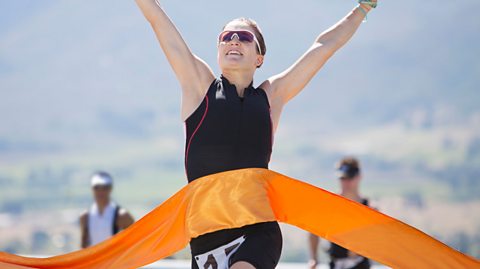When lockdown began back in March 2020, more and more of us took to the pavements for sunrise jogs or evening strolls, as walking and running became the simplest ways to stay active.
But there was a third choice – cycling.
Bike sales increased during the first lockdown, with Sport England reporting almost twice as many people as usual riding a bike in the spring.
With fewer people driving to schools or offices during lockdowns, cities including London, Manchester, Glasgow and Leicester adapted their roads to create car-free routes and pop-up cycle lanes to encourage more people to travel by bike.
And you know when dried goods were hard to get hold of at the beginning of lockdown? Well, it seems as if bikes are now the new pasta. So what's the big deal?
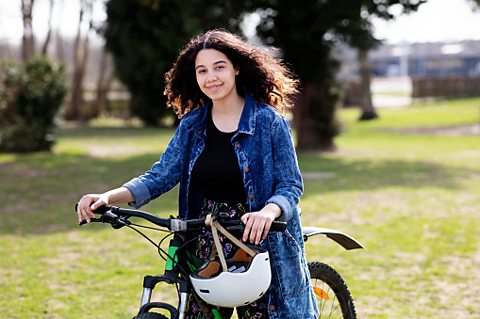
It's 'kinder than running'
Of course, one of the main reasons everyone seems to be loving cycling at the moment is that it's a good way to go from A to B without using public transport, which the government is still advising we avoid where possible.
But on top of this, what actually happens when you ride is pretty amazing.
Cycling can improve your overall lower body function and is a great way to strengthen leg muscles such as your hamstrings, quads and calves without working them too hard.
Lora Fachie has won world championship titles on both the track and the road for the Great Britain Cycling Team as well as a gold medal for her country at the 2016 Paralympic Games in Rio de Janeiro.
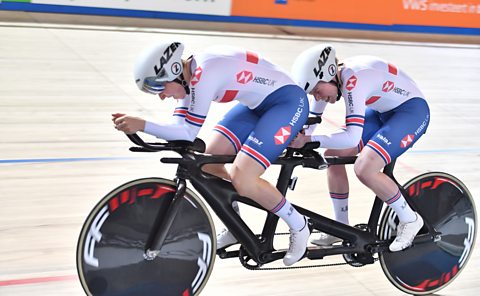 Image source, SW Pix
Image source, SW PixLora was born with a hereditary sight condition and lost her sight at the age of five. She rides tandem alongside her regular pilot Corrine Hall and says cycling is a brilliant way to keep fit.
“It’s a cardiovascular activity which helps you to burn calories and it is good for your heart and lungs. It also builds muscle strength, and it’s low impact, which means it’s kinder on your joints compared to running, for example.”
Riding your bike also targets your core muscles such as your back and abdominals - which can help support your spine, increase your stability and balance and also make your rides more comfortable.
In addition, the NHS promote regular cycling as a way of reducing the risk of chronic illnesses such as heart disease, type 2 diabetes and stroke.
Cycling at a moderate speed can burn around 500 calories an hour which is typically more than walking for the same amount of time. That means a 20-minute ride could use the same amount of calories as some bars of chocolate.
Body and mind
But cycling doesn’t just have physical benefits. According to the mental health charity Mind, regular exercise can lead to better sleep, happier moods and can help to manage stress, anxiety or intrusive thoughts.
Lora says riding a bike can be a great help.
“Personally, cycling allows me to clear my head of any negative thoughts. Once I’ve completed a training session, I feel so much better about myself.”
Teammate Joe Truman, who represented the UK at world championships and the Commonwealth Games, winning silver medals in the team sprint in both events in 2018, agrees: “It’s always the best way to clear your mind and get a fresh perspective on things. Getting outside into the fresh air and countryside is nice and it’s great for exploring new areas.”
 Image source, SW Pix
Image source, SW PixSo, it’s good for your physical and mental health and with people swapping cars for bikes in recent months, cycling has also seen less air pollution in our cities too.
But there’s another reason why you might want to get back on your bike – it’s also really fun.
“There are so many things I enjoy about cycling,” says Joe, whose first sporting love was football, but started cycling to build his fitness when the football season wasn’t on.
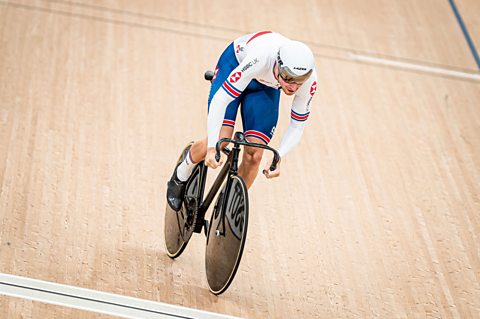 Image source, SW Pix
Image source, SW Pix“On the track, I just love to go fast and feel the adrenaline of racing. I get such a rush from pushing hard on the pedals and gaining speed around the steep banking."
For some, riding a bike might be as easy as, well, riding a bike. But if you haven’t ridden for a while, you might be nervous about getting back in the saddle.
Lora says that’s completely normal.
“It’s all about building up your confidence. Initially, find somewhere quiet where you can get a bit of practice and build up to riding on bigger roads and, as guidance allows, in bigger groups.
 Image source, SW Pix
Image source, SW Pix“Don’t worry about whether you are going too slow or not far enough, you can build up to that once your confidence has increased.”
So, whether it’s a socially distanced ride around the park with your friends, an off-road mountain bike trail adventure or even a tandem ride on a bicycle made for two – it seems like there’s no better time to join the cycling revolution.

Top tips before you ride your bike:
- If you've not ridden for a while, check your bike is in a safe condition to ride. Are the tyres pumped up? Is your saddle at the correct height?
- Got a helmet? Make sure it fits properly. It's no use if it's too big and you can't see!
- If it's been a while, find somewhere quiet to ride first, like your local park (if it's allowed there).
- Before you head out to ride on the roads, check the relevant sections of the Highway Code, so you know what you can and can't do and how to make sure you're staying safe.

The cycling jargon you need to know about
Why you need to worry about bonking if you leave the peloton - and others.
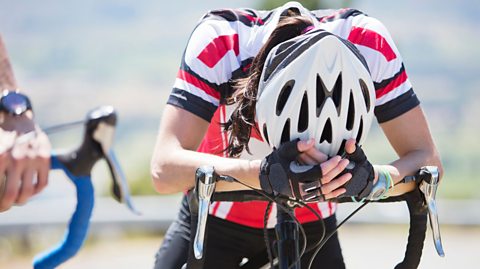
The Couch to 5K number crunch quiz
Test your knowledge of distance, speed and time equations.
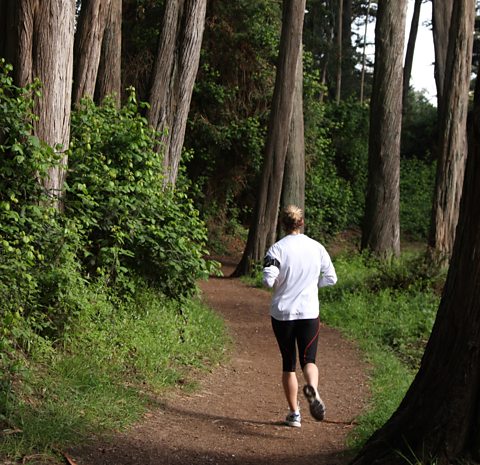
How long does it take to be marathon-ready?
Could a complete newbie be ready to run 26.2 miles before 2021?
